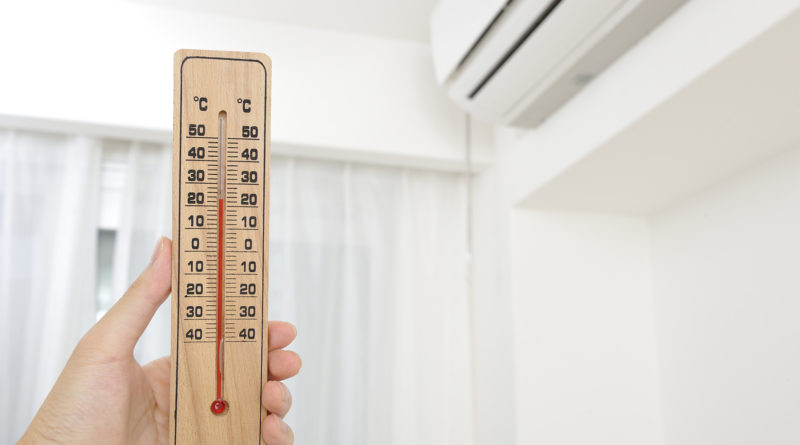How to Use Your A/C to Reduce Humidity and Improve Indoor Air Quality
If someone asked you about the quality of the air in your home, you might answer that there’s just been a dust storm. You might even go so far as to say that a recent rainstorm settled the dust and the allergens. But, did you think about the humidity in your home?
High humidity gives dust mites, mold, fungi, bacteria and, even, viruses an environment they love. Some experts call an excessive RH (relative humidity) a major cause of poor indoor air quality. You want your RH to be in the 25% to 55% range – some experts go a little higher with the bottom number and lower with the top number. They say a range of 30% to 50% is ideal. Higher humidity may mean respiratory problems and it may also mean musty odors, peeling wallpaper and damp areas – like your closets.
So, what controls the humidity level in your home? In the summer, it’s your hard-working air conditioner. Even if you live in a dry climate, your summer rainy season can raise the humidity past the danger level. So what do you do? Here are some things you can do to help the A/C get the job done.
- Start by knowing. You can’t fix it if you don’t know it. Buy a humidity monitor — a good one – and put it in your family room or living room, wherever your family spends the most time. In the summer with the A/C running, the humidity should be below 55% — 45% is just about as perfect as it gets. If your humidity is consistently above 60%, you may have a problem.
- Too cool isn’t the answer. If you think you can solve the problem by just making the A/C run more that really isn’t a solution. You should not lower your thermostat below 75 degrees F.
- Give the air conditioner a helping hand in the kitchen and bathroom.When you’re cooking, you want the fumes and steam to go up and out. Voila! Use the back burners and run the exhaust fan. The back burners are less likely to leak into the surrounding air when the exhaust is running. If your bathroom fan exhausts to the outside, use it to pull that extra moisture from your shower outside. You should keep the exhaust fan running for 15 minutes after you bathe or shower. Set a timer to help you remember to come back and shut them off!
- Your clothes might want some help, too. If your clothing feels a bit damp or your closet smells a little musty, leave the door open so the air circulates. We know your Mom told you to keep in closed but in times of high humidity, open is a good thing.
- How should your air conditioner perform? You are likely to have questions about this on a hot, humid summer day. On a hot afternoon, you should expect the air coming out of the registers to be 20 degrees F cooler than the house temperature. If it’s 15 degrees F or lower, it may mean a problem. There are two culprits here. First, you may have duct leakage on the return side of the air handler. Or, the air conditioner may need to be recharged with refrigerant. Call your air conditioner professional to check the unit. Overcharging is as damaging as have a low refrigerant level. It may be time to think about a new A/C unit if you have to constantly add refrigerant. When the air is getting hotter and the service calls are getting more frequent, it may be time to look into a new air conditioner. Buy new and you’ll get some bonuses – a warranty so you can quit worrying and more energy efficiency which might bring your utility bills down.
- Run the A/C correctly. Keep the fan switch in the AUTO position and get a big benefit. The AUTO position dehumidifies about twice as well as when you turn the switch to the ON position. If you really enjoy a slight breeze and circulating air, use your ceiling fan or a portable fan.
- Give your air conditioner some tender, loving care.Once a year, you should have your air conditioner inspected and maintained by a certified air conditioning contractor. The coils should be cleaned, the air temperature at the registers should be checked and all the connections should be tight and secure. Regular maintenance can mean a cool (not soggy) summer and a longer life for your air conditioner.
There’s more to being comfortable than just cool air. You want an efficient air conditioner that will also control your indoor RH. If you think your current unit isn’t getting the job done, talk with your Air Conditioning Contractor. Have the technician thoroughly inspect your unit. An air conditioner should last about 10 years. If your A/C isn’t going to be ready for the next summer, think about replacing it in the off-season. You’ll save and be ready for the first hot day!

